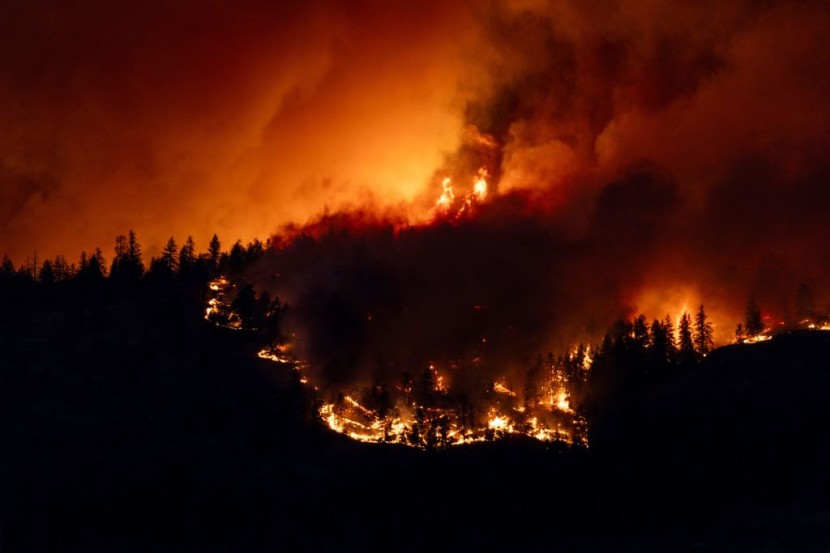
On Monday, New Yorkers can expect hazy skies as smoke from Canadian wildfires makes its way into the city, officials said Sunday.
According to National Weather Service meteorologist Matt Wunsch, Sunday's hazy skies indicate that Monday will be very similar.
New Yorkers Brace for Canadian Wildfire Smoke
Wunsch explained that as the smoke is carried east, a northerly wind moves it southward toward the city, NY Daily News reported.
"The gusts are very feeble due to the high pressure," Wunsch added. The smog will take some time to leave the East Coast."
The New York State Department of Environmental Conservation predicts a moderate air quality index of 55, which is a far cry from the shocking 484 of 500 the city reached in early June.
In a statement, the mayor advised those who are sensitive to air pollution to be cautious about the forecast.
New Yorkers should pay attention to their bodies, particularly if they have any preexisting health conditions, and take any precautions necessary to ensure their safety.
During the summer, when wildfires in Canada transformed the city skyline into a scene from an apocalyptic film, some local politicians accused the mayor of being sluggish to act.
In July, Public Advocate Jumaane Williams stated, "There should have been a more imperative and effective method to inform people about the poor air quality."
Zach Iscol, the commissioner of New York City's Office of Emergency Management, stated that state officials have not issued health alerts in response to the most recent outbreak of wildfire smoke, which is anticipated to remain moderate.
Read Also : North Korea Criticizes UN Nuclear Agency as US Mouthpiece for Joining Washington-Led Pressure Campaign
Canada Wildfires
When scientists began analyzing data to evaluate Canada's fire season for the current year, they labored to find the appropriate superlatives. "Never before seen," "exceptional in scope and duration," and "massive long-term consequences" were common phrases.
The impact is enormous in Quebec, which has been severely affected and is less acclimated to extremely large fires than the western states. In the conifer forest of Abitibi-Témiscamingue, only a few clumps of moss survived the blazes that began in June. There is nothing but a desolate landscape as far as the eye can see.
These fires are fuelled by drier and harsher conditions brought on by global warming. In a vicious cycle, these fires contribute to global warming by emitting greenhouse gases into the atmosphere.
In comparison to other ecosystems, this northern forest emits 10 to 20 times more carbon per unit of burnt area, as per News18.
This has contributed to Canada's emissions reaching unprecedented levels this year, 473 megatons. According to data from Europe's Copernicus observatory, that's more than three times higher than the previous record.
Due to the bulk of the humus on the ground in the boreal forest, fires can continue to blaze for months.
Guy Lafreniere, the mayor of Lebel-sur-Quevillon, a small Quebec community of 2,000 people that was forced to evacuate twice this summer, says with a smile, "When we explain to people that the fires will only be truly extinguished by snow, they all become anxious for winter to arrive."
Homes were spared thanks to the adjacent lake, which halted the fire's progress. But the entire summer was ruined; no child completed the school year, and hundreds of weekend and vacation cabins constructed in the forest were obliterated.
Today, the city is surrounded by firebreaks that were constructed during the fires. A circuit of conifers, which are highly combustible, were felled.
The vast majority of Canada, including the far north, is experiencing severe drought conditions. Earlier this year, lightning storms were causing hundreds of fires per day. Firefighters, authorities, and residents were overburdened and declared summer-long emergencies.
For the first time in the country's history, almost all Canadians were directly or indirectly affected by this year's fire season. The smoke traveled thousands of miles, repeatedly polluting the air across North America and Europe.
© 2026 HNGN, All rights reserved. Do not reproduce without permission.








